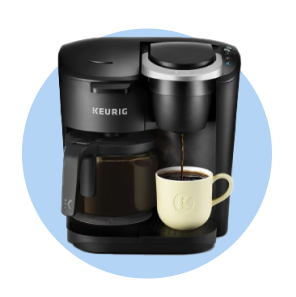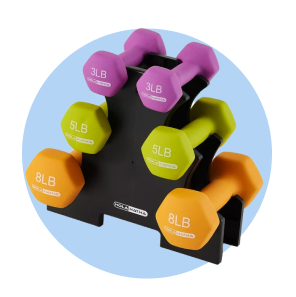
Why the Science Behind Food & Productivity Matters to Business Owners
Nourishing employees’ bodies & minds
The relationship between human beings and the food they eat is more complex than it may appear at first. At the most basic level, people need to consume calories to fuel their muscles, organs and brains. Dig a little deeper, though, and you’ll discover that people also eat for psychological, emotional and cultural reasons. This is as true in the workplace as it is at home. The right food and food habits can keep employees feeling sharp, motivated and focused throughout the entire workday.
For the most part, employers in the United States are under no legal obligation to feed their workers. However, nutritious food could play a role in your staff’s cognitive function, productivity and overall performance. By following the latest trends in nutritional science, business owners can help employees feed both their bodies and their minds.

Nutrition as a science
From a management perspective, providing food for employees may seem like yet another business expense that could detract from the bottom line. From a scientific perspective, though, the right food may be the difference between an unfocused, unmotivated employee and one who’s poised to succeed.
Consider a 2018 study from the medical journal Nutrición Hospitalaria, which researched how different foods affect cognitive function. The authors concluded that proper nutrition can “optimize brain function,” and that different types of food can affect our attention spans, cognition and memory for either good or ill.
Similarly, a 2020 study from the medical journal Nutrition Reviews suggested that nutrient-dense diets could increase workplace productivity. Well-nourished workers may be less prone to illness and injury, with a subsequent reduction in absenteeism and work-related disability.
However, both studies pointed out that not all foods are equally conducive to positive outcomes. The Nutrición Hospitalaria study touted the benefits of “low glycemic index” foods, such as fresh fruits and vegetables, while observing the potential detriments of foods “rich in saturated fats and refined sugars.” Those would include cheese, pastries and red meat. The Nutrition Reviews study made similar observations regarding foods with high nutrient densities (e.g., fish, nuts, legumes) and low nutrient densities (e.g., candy, chips, cookies).
In addition to food, people also need to consume water—about four to six cups per day, according to the Harvard Medical School. Hydration also plays a role in optimal cognitive function.
A 2019 study from the journal Nutrients observed that dehydration in humans could lead to deficits in short-term memory and visual acuity, as well as an increase in negative feelings, such as hostility and depression. Conversely, staying hydrated could help improve attention span and overall mood.
These studies suggest that, all other things being equal, an employee with access to nutritious food and plenty of water may enjoy both physical and mental benefits from them. For some suggestions on how to stock your workplace breakroom, check out 5 Work Lunch Ideas That Your Employees Will Actually Love.
Dietary habits on the job

When we eat can be just as important as what we eat. A 2019 study in Nutrients discussed meal frequency and timing in great detail, exploring the pros and cons of the traditional “breakfast-lunch-dinner” pattern in the Western world.
Consider a hypothetical worker who eats three large meals throughout the day, as well as three smaller snacks. According to the study, people who follow this pattern could face increased levels of cholesterol, inflammation, sleep disruption and, ultimately, obesity. Ironically, they may also feel hunger more frequently, as they become desensitized to the hormones that produce feelings of satiety.
If employees in your workplace skip meals and snack frequently—particularly if those snacks have low nutrient densities—they may be exposing themselves to poor sleep and physical discomfort. On the other hand, employees who feel satiated, comfortable and well-rested may perform better than those who don’t.
To set employees up for both workplace and personal success, business owners can encourage them to eat a filling breakfast each day, keep snacking to a minimum and gravitate toward foods with high nutrient densities. Providing a nutritious meal in the morning is one option. Ensuring that employees leave on time is also important, as delayed meals can also have negative effects on energy and body weight.

Real-world benefits of workplace nutrition
It may help to think of food in the workplace as an investment rather than an expense. Recruiting firm J2T analyzed the real-world benefits of free employee lunches and discovered that they’re good for collaboration, productivity and even staff retention.
According to J2T, free food:
- Helps attract new talent, as it’s a perk that not every company offers.
- Entices hybrid workers to come in more often, since they don’t get free lunch at home.
- Improves collaboration by bringing workers together.
- Incentivizes midday meetings, as employees don’t have to sacrifice or reschedule their lunch breaks.
- Decreases staff turnover, since satisfied employees are more likely to stay.
The firm cites a study from Cubist Pharmaceuticals, now a subsidiary of Merck. Cubist monitored employees as they shared lunches, then asked them to rate their sentiments toward work at the end of each week. The workers who ate together reported improved communications and levels of productivity.
If you want to see firsthand whether food can foster collaboration, read What Are the Best Food Ideas for Work Meetings?
Get fresh, nutritious food with Walmart Business
These studies, and others, suggest that eating nutritious foods each day could help workers feel more energetic, focused and productive. For more ideas on how to improve your business’s culture and performance, check out the Walmart Business content hub. There, you’ll find marketing tips, financial guides and more.
To get nutritious, delicious food for your employees, sign up for a Walmart Business account. You’ll be able to buy workplace necessities in bulk, consult your full order history for both online and in-store purchases and share payment options between multiple authorized users.
If you already have an account, upgrading to a Walmart Business+ membership gets you free shipping from Walmart.com with no order minimum,1 as well as free delivery from nearby Walmart stores with a $35 minimum.2 You’ll also earn 2% cash back with Walmart Business Rewards on orders of $250 or more.3 All of these benefits could help your organization save more than $500 per year.4
Everyone at your company needs to eat. If you provide the food, your employees can take care of the rest.


Limited-time offer
Unlock your special promo code
Stay informed on Walmart Business news & get $20 off a $100 purchase!1
1Minimum order of $100. Promo code can be used one time & may not be combined with other offers. Offer not transferable & void where prohibited by law. Customer responsible for all applicable taxes. Offer expires 12/31/2025 at 11:59pm PT. Further restrictions apply. See terms at checkout for details. Promo code offers available in limited quantities. While supplies last.
1Excludes most Marketplace items, freight and certain location surcharges.
2Restrictions apply.
3Rewards can only be used toward future purchases on Walmart Business. Additional terms apply.
4Savings based on 1 free $35+ delivery order vs. $9.95 fee and 1 free shipping order under $35 vs. $6.99 fee biweekly, plus 2% Walmart Business rewards on monthly order >$250 (average value of $400).
Exciting news awaits
Hear firsthand about new products, features & promotions.
By clicking submit, you agree to receive emails about Walmart Business and acknowledge you have read and agreed to our Terms of use and Privacy Policy.










